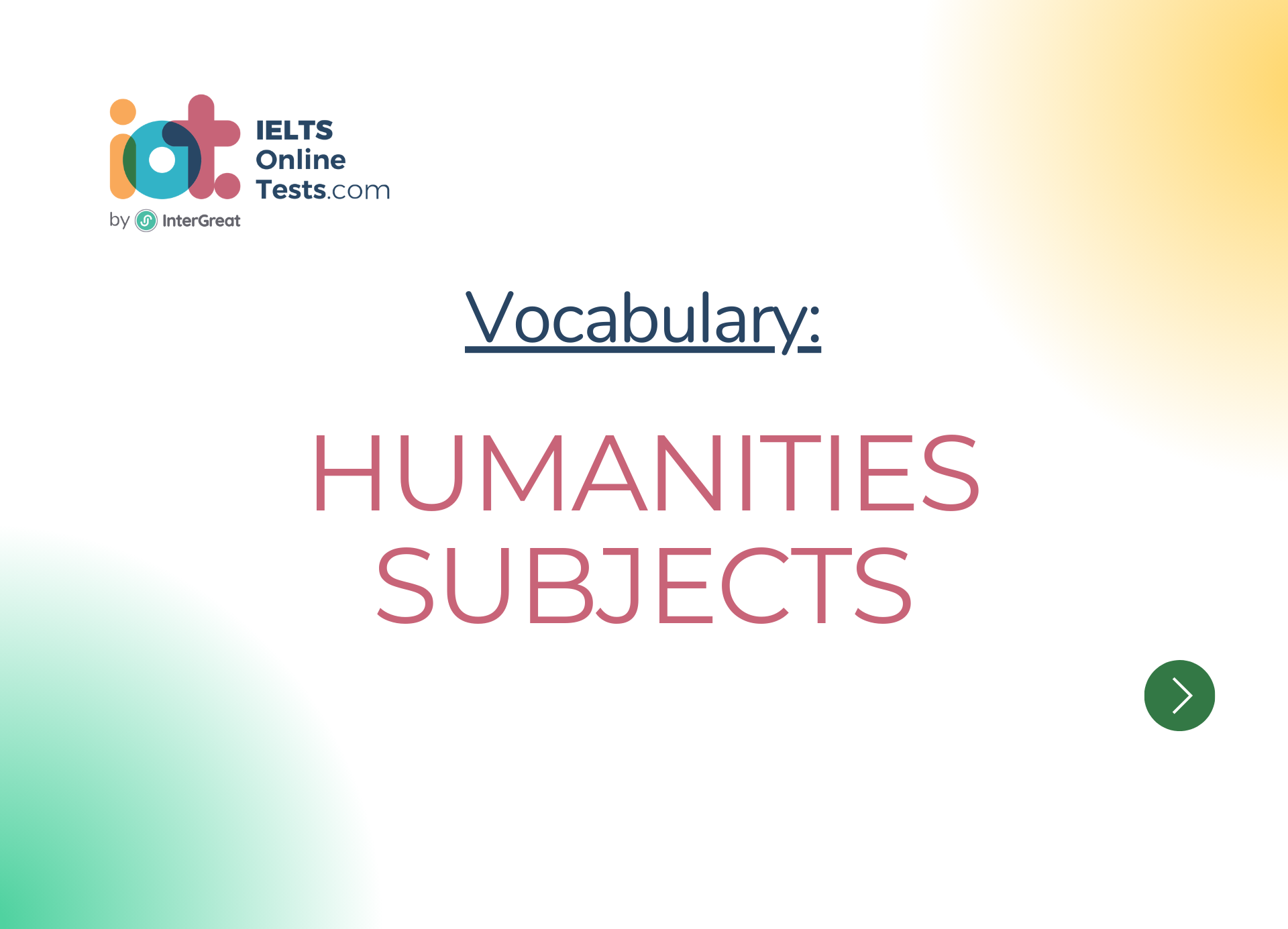
Humanities subjects
Here's a lesson on vocabulary related to "Humanities Subjects" for the IELTS band score 3.0-4.5:
I. History:
World History: The study of major events, civilizations, and developments throughout human history.
Ancient History: The study of civilizations and societies from ancient times, such as Ancient Egypt or Ancient Rome.
Modern History: The study of events, movements, and developments from the late 18th century to the present.
Cultural History: The study of the cultural aspects and practices of different societies throughout history.
Political History: The study of political systems, governments, and significant political events.
II. Literature:
Fiction: Literary works that are imagined or invented, such as novels, short stories, and plays.
Poetry: Literary works characterized by rhythm, rhyme, and expressive language.
Drama: Literary works written for performance on stage, often featuring dialogue and action.
Prose: Written or spoken language that is not in the form of poetry or drama.
Literary Criticism: The analysis and evaluation of literary works, authors, and their techniques.
III. Philosophy:
Ethics: The study of moral principles, values, and ethical decision-making.
Metaphysics: The branch of philosophy that examines the fundamental nature of reality and existence.
Epistemology: The study of knowledge, beliefs, and the nature of justification.
Logic: The study of reasoning and valid argumentation.
Aesthetics: The philosophy of art, beauty, and the nature of aesthetic experiences.
IV. Languages and Linguistics:
Linguistics: The scientific study of language and its structure, including phonetics, syntax, and semantics.
Sociolinguistics: The study of language in relation to social factors, such as regional dialects or language variation.
Syntax: The study of the structure and arrangement of words in sentences.
Semantics: The study of meaning in language, including word meaning and sentence meaning.
Pragmatics: The study of how context influences the interpretation and use of language.
V. Cultural Studies:
Cultural Anthropology: The study of human cultures, beliefs, practices, and social organization.
Gender Studies: The examination of gender roles, identities, and inequalities in society.
Media Studies: The analysis of media content, communication, and its impact on society.
Popular Culture: The study of cultural products and practices that are widely consumed by the general public.
Cultural Identity: The sense of belonging and identification with a particular culture or group.
VI. Art and Art History:
Visual Arts: Various forms of artistic expression, such as painting, sculpture, drawing, and photography.
Art History: The study of artistic movements, styles, and the historical context of artworks.
Renaissance: A period in European history known for its revival of art, literature, and intellectual pursuits.
Impressionism: An artistic movement characterized by capturing the impression or essence of a subject rather than precise details.
Contemporary Art: Artistic works created in the present time, often reflecting current social, cultural, and political themes.
VII. Music:
Classical Music: Music composed in the traditions of Western classical music, typically featuring orchestras and symphonies.
Jazz: A genre of music characterized by improvisation, syncopated rhythms, and expressive performance styles.
Pop Music: Popular music that appeals to a wide audience, often characterized by catchy melodies and accessible lyrics.
World Music: Music that represents various cultural traditions and styles from around the world.
Musicology: The scholarly study of music, including its history, theory, and cultural significance.
Remember to practice using these vocabulary words in sentences and conversations to improve your understanding and fluency in English.




